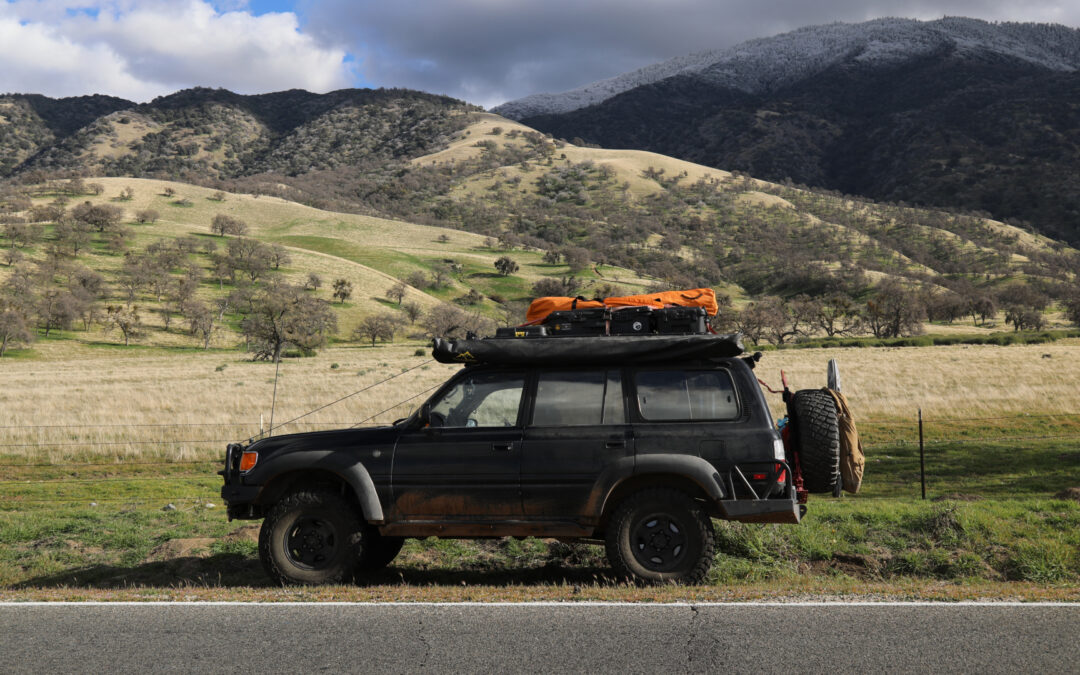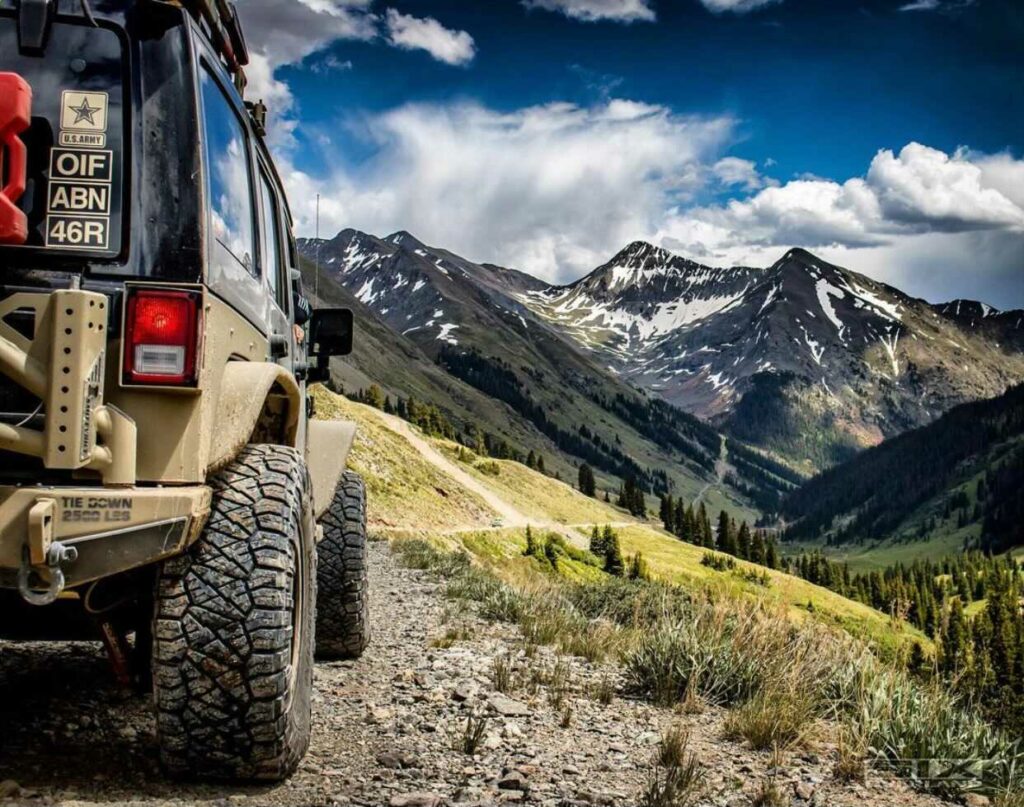Overland on a budget without breaking the bank? Yes! It’s possible. Creating a budget for your overland adventures is a simple and straightforward way to get the most bang for buck while exploring roads paved and unpaved. Keeping and (most importantly) maintaining that budget can add miles to your route and help avoid cutting trips short if you get hit with unexpected expenses or have your trip impacted with volatile costs like gas. (Gas prices in California. It’s a thing.)
Here are 12 tips and tricks to help you plan and execute a budget-friendly overlanding trip.
Plan your route in advance
Planning your route in advance can save you money and time. Research your destination and identify any free or low-cost campsites, as well as any must-see landmarks or attractions along the way. Use maps and online resources to map out your route and estimate fuel costs.
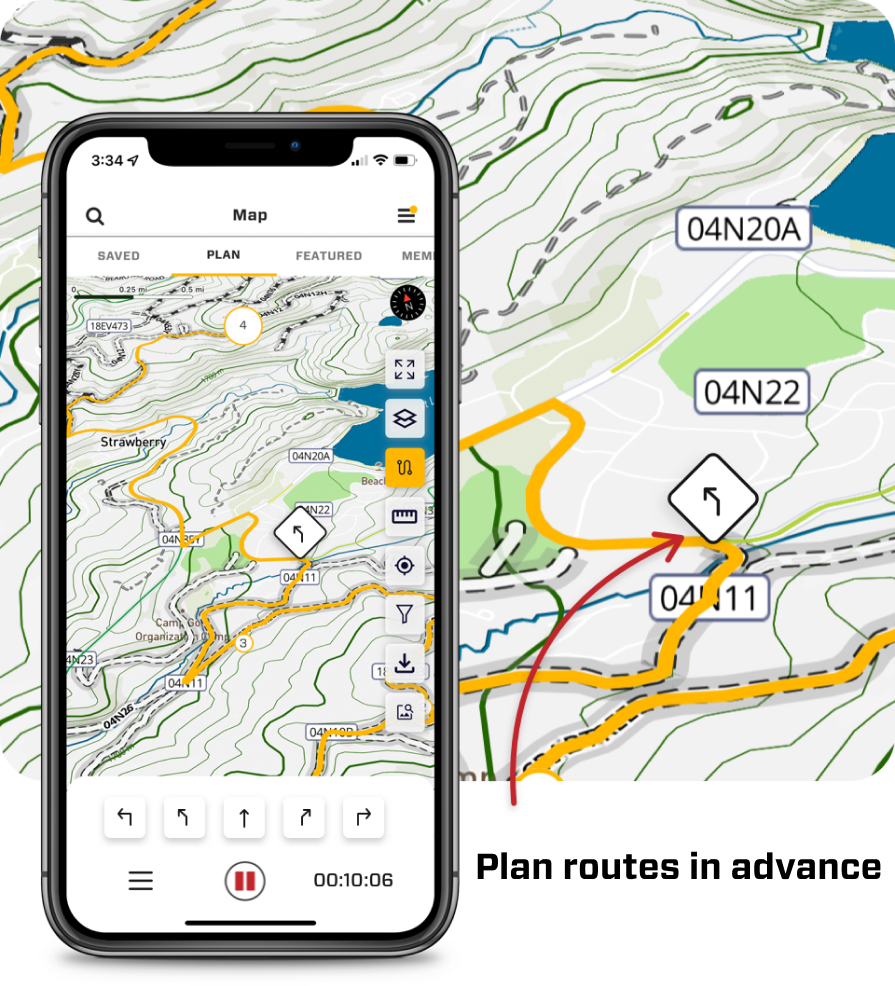
Pack efficiently for better MPG
This might not seem obvious, but the more you overload your vehicle, the more you will consume fuel. Since fuel is the most volatile necessity, this can quickly eat into your budget.
Constantly scrutinize the gear and equipment you carry. Ask yourself if the item is vital such as recovery gear and tools, or if it’s ‘nice to have’ like propane fire pits and large gas stoves. Finding ways to shave even one hundred pounds from your load out can make a difference.
This can’t be emphasized enough. Pack only the essentials, and prioritize lightweight and multipurpose gear. The ultralight hiking crowd has great insight on this topic. This article from Clever Hiker is a fantastic resource.
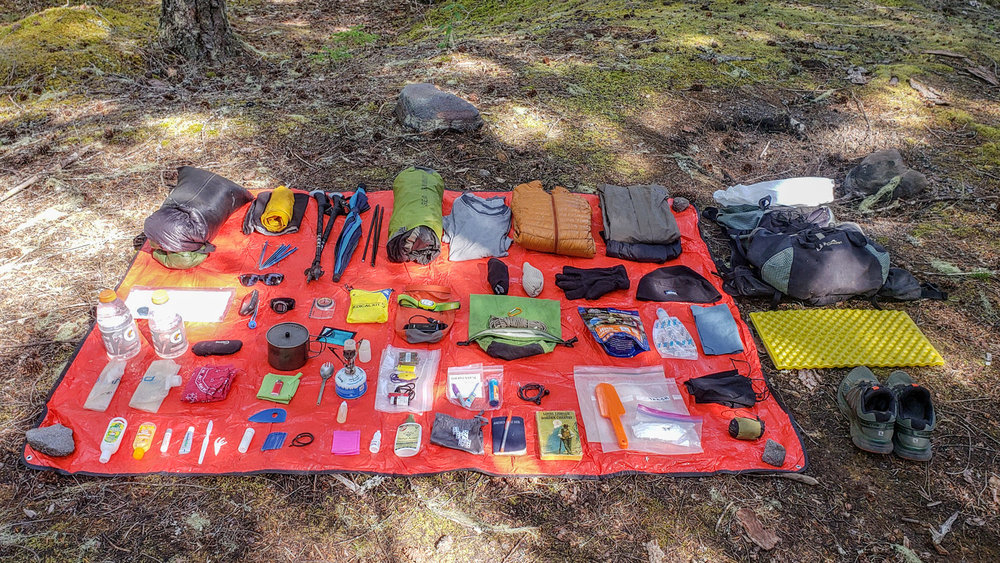 Photo credit: Clever Hiker
Photo credit: Clever Hiker
Buy used for big overland on a budget wins
Make Craigslist, Facebook marketplace, thrift stores and gently used gear stores your friend. You would be surprised at how much gear you can acquire at steep discounts just by being open to gently used items.
Corporations are taking note of this trend and many companies have launched their own buy back programs for their gear. The REI Resupply site is a great example of this. When you buy used from the source you can be assured that the quality they represent is accurate.
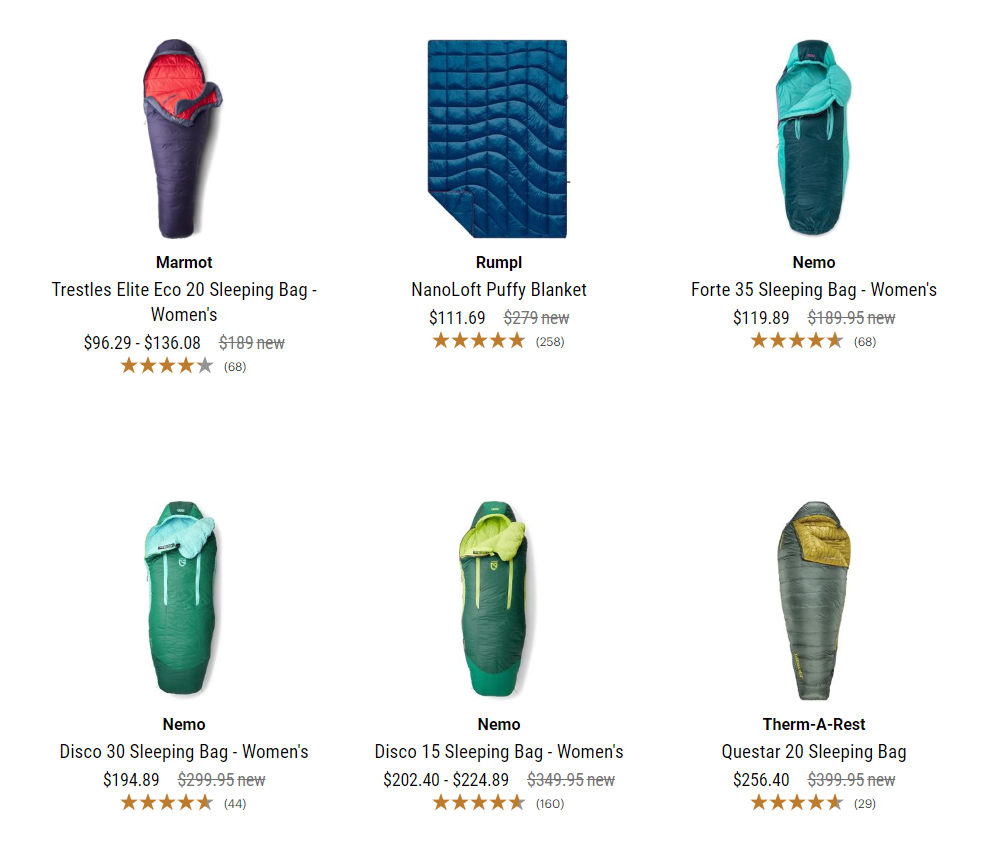
REI Resupply has a wide range of gently used sleeping gear available at steep discounts.
Rent Your Gear
This tip is for those who keep their immediate cash flow top of mind. Rather than commit to a large investment in pieces like sleeping bags, bulky kitchen gear and tents, consider renting or borrowing this gear. You will avoid a huge outflow of cash and you will have a better idea on what you do want to spend money on.
There’s an argument both ways here when it comes to budget. By renting gear you are adding cost to the purchase of big ticket items like sleeping bags down the line.
But you could also argue that renting the gear helps you make a highly informed decision on what you want to invest in. Gear rental could help you realize that you want to spend more for a sleeping bag, and not spend as much on a gas stove.
There are variety of gear rental options available, including ordering online with companies like Xscape Pod.
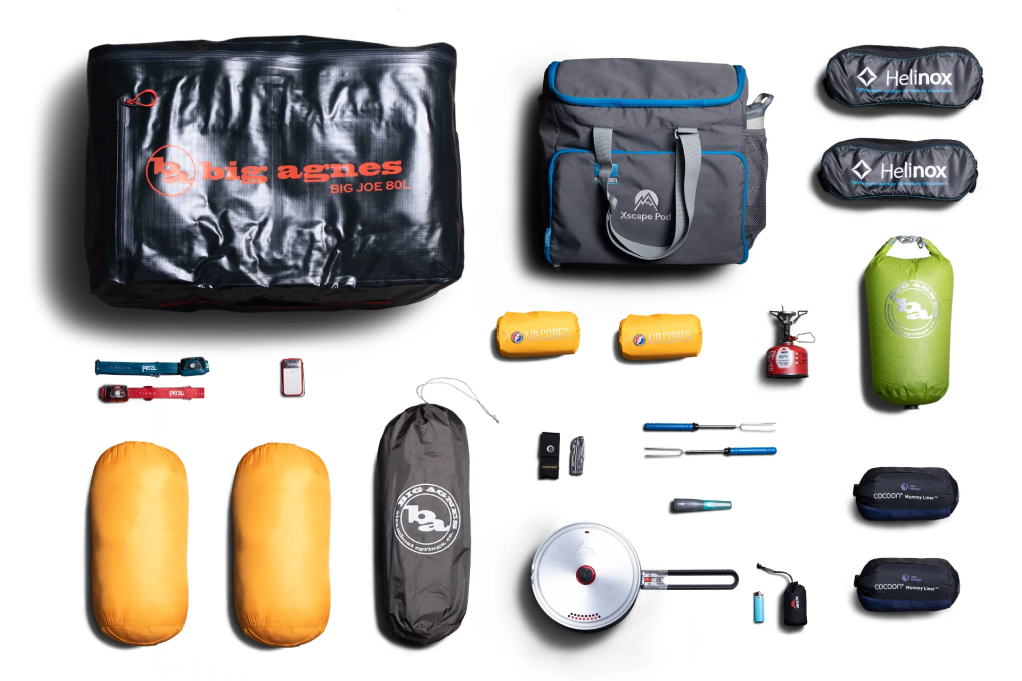
The Excape Pod camping rental kit
Cook your own meals
Eating out at restaurants can quickly add up, especially in remote or touristy areas. Instead, plan to cook your own meals using ingredients in your cooler/fridge and pantry box. If you have a small portable camping stove like a JetBoil, even better. Stock up on non-perishable food items like canned goods and pasta, and shop for fresh produce and meats as you go.
There is something to be said about pulling over to a rest stop or parking lot and making a quick meal from your tailgate. You are also WAY more likely to have a healthy meal vs the drive thru.
Bring your own water
Water can be expensive to buy in remote areas, so bring your own supply. Pack a multi gallon water storage solution or a hydration system, and bring a water filtration system or purification tablets for emergencies.
You do not have to break the bank on water storage containers. Camping water jugs typically come in either 5 gallon or 2.5 gallon sizes and a solid jug will run you about $35.
Pro Tip: It can be easier to carry two 2.5 gallon containers to make portability and refilling easier.
Be sure to take the time to research potable water refilling stations along your route in advance.
And for those who aren’t crazy about the taste of ‘plain’ water, consider grabbing a few flavor solutions like Mio. You’ll get instant flavor without the cost or bulk of canned soda or juice.
DIY maintenance
This falls into the category of a little education that can go a LONG way to extend your budget.
Learn how to perform basic vehicle maintenance tasks like oil changes, tire rotations, and brake pad replacements. Not only can this save you money, but it can also give you peace of mind knowing that you can take care of any issues that may arise on the road.
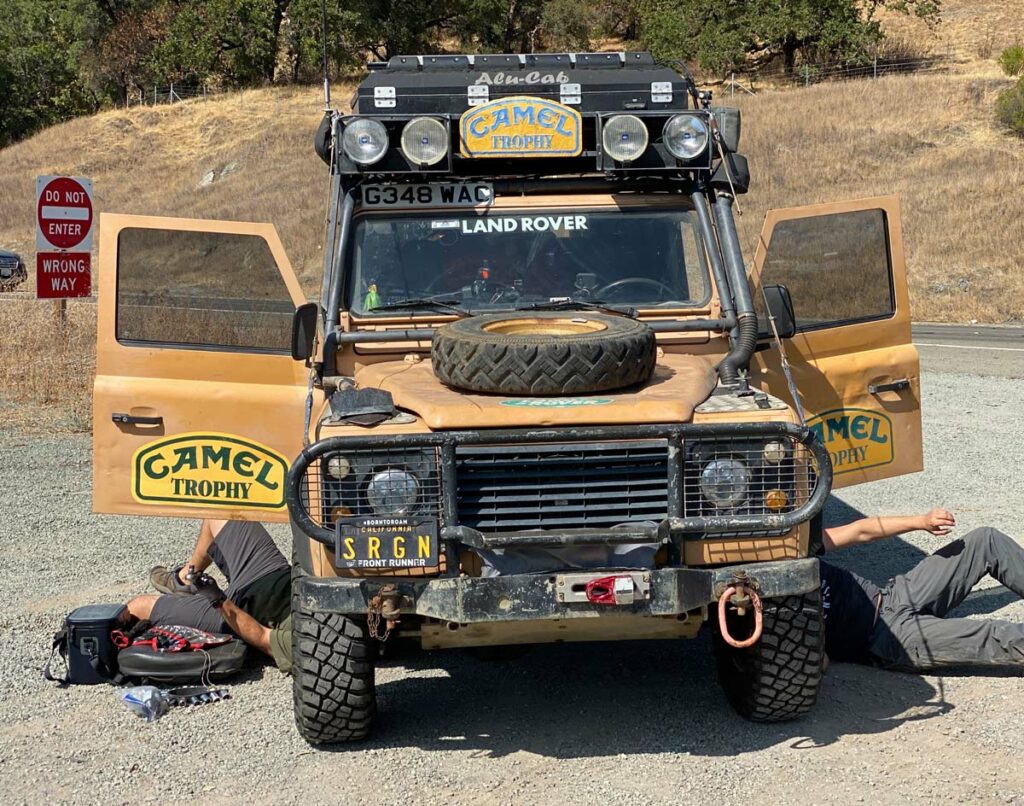
Travel during the off-season
Traveling during the off-season can save you money on campsite fees, gas prices, and even tourist attractions. Consider visiting popular destinations during the shoulder season or winter months when prices are typically lower.
Shorter destination hopping
This tip falls into the immediate cash flow category as well. This is about leveraging the time you have on the road against the distance to your planned destinations. The less you have to travel between destinations or the more time you can take to get there, the less cash you will spend on gas.
This can take many different shapes and forms. You can decide to front load your journey with hundreds of miles so you can land in an area with numerous experiences in close proximity. Or you can decide to take a more local trip with plenty of downtime in the afternoon and evenings.
The high level takeaway from this tip is to reduce the pressure to see it all, do it all, cover it all, visit it all, and travel it all in one fell swoop. You don’t have to travel very far to experience adventure.
Join a community
This can’t be emphasized enough. Overlanding communities can be a great resource for budget-conscious travelers. Join online forums or social media groups to connect with other overlanders and learn about free or low-cost campsites, meal prep advice, tips on vehicle maintenance, and more.
We feel obligated to mention the Overland Bound community for this very purpose. Learn more here.
Keep a budget spreadsheet
Keeping track of your expenses can help you stay within your budget and avoid overspending. Use a spreadsheet or budgeting app to track your expenses, including fuel, food, campsite fees, and any other costs associated with your trip.
This tip can be an act of discipline for some, especially if you’re used to just going with the spending flow. Check in often and see how close you can stay to your budget.
Have fun
Overlanding on a budget is an exercise in creative thinking and problem solving. The process of rethinking the conveniences you are used to and reimagining them for the road can be, dare we say, fun.
More importantly, it’s an opportunity to take inventory of the ‘things’ we carry with us and the patterns of spending that we might be used to. Breaking the habit of hitting the drive thru on the road and stopping to make a quick meal instead is just one way to take a pause around the ‘usual’ routine.
We are pretty darn passionate about overland travel and exploration, so we created an online community and mapping and navigation app to help people get outside their comfort zone. You can join up here.
We hope this article helps inspire you to rethink adventure and push you just a little bit further down the road. See you out there!

